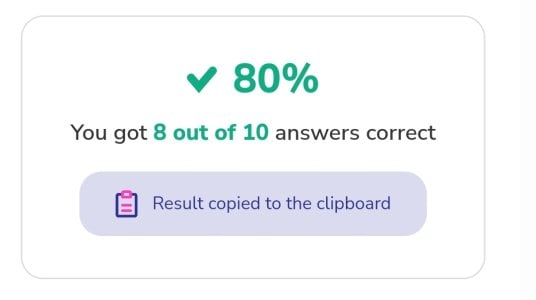Question 1: Why are flamingos pink in color?
Question 2: What is the approximate value of the mathematical constant pi (π)?
The number π is a mathematical constant representing the ratio of a circle's circumference to its diameter. It is an irrational number, which means it cannot be expressed exactly as a simple fraction, and its decimal representation never ends or repeats. The value 2.71828 is known as Euler's number (e), 1.61803 is associated with the golden ratio (φ), and 6.28318 is two times pi, representing one full turn in radians (2π).
Question 3: When did the most recent supercontinent, Pangea, begin to break apart?
Pangea existed during the late Paleozoic and early Mesozoic eras and began to break apart in the early Jurassic period, around 175 million years ago. This event fundamentally changed the Earth's landscape and would eventually lead to the formation of our present-day continents.
Question 4: Which television show was the first to air the impact of a live televised presidential debate?
The first live televised presidential debate in the United States was between John F. Kennedy and Richard Nixon on September 26, 1960. The debate significantly impacted public opinion and is often cited as a key moment in the election, which Kennedy went on to win.
Question 5: Which country has the oldest continuously functioning parliament in the world?
The Icelandic parliament, known as the Althingi, was established in 930 AD, making it arguably the oldest parliament in the world. It originally convened at Þingvellir - today a national park - and has been functioning continuously ever since.
Question 6: Which Roman emperor was famously assassinated on the Ides of March?
Julius Caesar was assassinated on March 15, 44 BCE by a group of Roman senators due to his growing power and potential threat to the Republic. The Ides of March has since become synonymous with his assassination.
Question 7: How long does it take to hard-boil an egg?
The time it takes to hard-boil an egg can vary based on several factors, such as the size of the egg, starting temperature, and desired consistency. However, a general guideline for a large egg is 9-12 minutes in boiling water for a fully-set yolk and firm white. It's recommended to plunge the boiled eggs into ice-cold water immediately after cooking to stop the cooking process and make them easier to peel.
Question 8: The Parthenon is a former temple on the Athenian Acropolis in Greece, dedicated to which goddess?
The Parthenon was dedicated to Athena Parthenos, the patron goddess of Athens. It was completed in 438 BC during the height of the Athenian Empire.
Question 9: In Irish folklore, who is known for having a pot of gold at the end of the rainbow?
Leprechauns are a type of fairy in Irish folklore, typically depicted as little bearded men, wearing a coat and hat, who partake in mischief. They are commonly said to hide their pots of gold at the end of a rainbow, and this treasure is fiercely guarded. The leprechaun has become one of Ireland's most famous mythical creatures, popularized internationally around St. Patrick's Day.
Question 10: What was the Berlin Wall?
Erected in 1961, the Berlin Wall was a guarded concrete barrier that physically and ideologically divided Berlin from 1961 to 1989. It was a symbol of the Cold War, separating the communist East and the democratic West. The wall fell on November 9, 1989, leading to German reunification.







Flamingos are actually born with grey feathers, which gradually turn pink in the wild because of a natural pink dye called canthaxanthin that they obtain from their diet of shrimp and algae. The more they eat foods with this dye, the pinker they become.